
道德情操论 The Theory of Moral Sentiments(导读注释版)
¥ 70 3.5折 ¥ 198 九品
库存3件
上海宝山
认证卖家担保交易快速发货售后保障
作者[英]亚当·斯密(Adam Smith) 著
出版社上海译文出版社
出版时间2022-08
版次1
装帧精装
货号7+5
上书时间2022-11-24
- 店主推荐
- 最新上架
商品详情
- 品相描述:九品
图书标准信息
- 作者 [英]亚当·斯密(Adam Smith) 著
- 出版社 上海译文出版社
- 出版时间 2022-08
- 版次 1
- ISBN 9787532790456
- 定价 198.00元
- 装帧 精装
- 开本 32开
- 纸张 胶版纸
- 页数 520页
- 字数 461.000千字
- 【内容简介】
- 《道德情操论》是斯密的伦理学著作,首次出版于1759年,斯密去世前共出版过六次。该书创作于斯密的另一本著作《国富论》之前,是斯密反复修订至最满意的作品,其中不仅包含了他在狭义的道德问题上的系统认识,还包含了非常丰富的关于人类社会行为的思想。全书由七卷构成,主要阐释道德情感的本质和道德评价的性质。斯密在该书中继承了哈奇逊的道德感学说和休谟的同情论思想,并形成了自己的道德情感理论。他反对神学家用天启来说明道德的根源,而把他认为是人本性中所有的同情的情感作为阐释道德的基础。他用同情的原理来解释人类正义感和其它一切道德情感的根源,来说明道德评价的性质,并以此为基础表明各种基本美德的特征。斯密在《道德情操论》中所阐述的不少论断都可以作为思想资源引入行为经济学和实验经济学的发展之中。可以说这部篇幅不长的著作对后世的很多领域都产生了重大影响。
- 【作者简介】
- 亚当·斯密出生于1723年的苏格兰,是经济学的主要创立者。他早年在家乡求学,在格拉斯哥大学时期,完成了拉丁语、希腊语、数学和伦理学等课程。之后赴牛津学院,在那里阅读大量书籍。1750年后,斯密在格拉斯哥大学担任逻辑学和道德哲学教授,并于1759年出版《道德情操论》,获得学术界极高评价。于1768年开始着手著述《国民财富的性质和原因的研究》(即《国富论》),至1773年基本完成,1776年3月此书出版后引起大众广泛的讨论,影响所及除了英国本地,连欧洲大陆和美洲也为之疯狂,因此世人尊称斯密为“现代经济学之父”。
- 【目录】
-
导 读
— 001 —
Part I
Of the Propriety of Action
— 001 —
Section I Of the Sense of Propriety
— 001 —
Chap. I Of Sympathy
— 001 —
Chap. II Of the Pleasure of mutual Sympathy
— 009 —
Chap. III Of the manner in which we judge of the
propriety or impropriety of the affections of other men,
by their concord or dissonance with our own
— 013 —
Chap. IV The same subject continued
— 017 —
Chap. V Of the amiable and respectable virtues
— 024 —
Section II Of the Degrees of the different Passions which
are consistent with Propriety
— 029 —
Introduction
— 029 —
Chap. I Of the Passions which take their origin from
the body
— 030 —
目 录
002
Chap. II Of those Passions which take their origin
from a particular turn or habit of the Imagination
— 036 —
Chap. III Of the unsocial Passions
— 040 —
Chap. IV Of the social Passions
— 048 —
Chap. V Of the selfish Passions
— 050 —
Section III Of the Effects of Prosperity and Adversity
upon the Judgment of Mankind with regard to the
Propriety of Action; and why it is more easy to obtain
their Approbation in the one state than in the other
— 055 —
Chap. I That though our sympathy with sorrow is
generally a more lively sensation than our sympathy
with joy, it commonly falls much more short of
the violence of what is naturally felt by the person
principally concerned
— 055 —
Chap. II Of the origin of Ambition, and of the
distinction of Ranks
— 064 —
Chap. III Of the corruption of our moral sentiments,
which is occasioned by this disposition to admire the
rich and the great, and to despise or neglect persons of
poor and mean condition
— 080 —
Part II
Of Merit and Demerit; or, of the Objects of Reward and
Punishment
— 088 —
Section I Of the Sense of Merit and Demerit
— 088 —
Introduction
— 088 —
003
Chap. I That whatever appears to be the proper object
of gratitude, appears to deserve reward; and that, in the
same manner, whatever appears to be the proper object
of resentment, appears to deserve punishment
— 089 —
Chap. II Of the proper objects of gratitude and
resentment
— 092 —
Chap. III That where there is no approbation of
the conduct of the person who confers the benefit,
there is little sympathy with the gratitude of him who
receives it: and that, on the contrary, where there is
no disapprobation of the motives of the person who
does the mischief, there is no sort of sympathy with the
resentment of him who suffers it
— 095 —
Chap. IV Recapitulation of the foregoing chapters
— 097 —
Chap. V The analysis of the sense of Merit and
Demerit
— 099 —
Section II Of Justice and Beneficence
— 102 —
Chap. I Comparison of those two virtues
— 102 —
Chap. II Of the sense of Justice, of Remorse, and of
the consciousness of Merit
— 108 —
Chap. III Of the utility of this constitution of Nature
— 113 —
Section III Of the Influence of Fortune upon the
Sentiments of Mankind, with regard to the Merit or
Demerit of Actions
— 122 —
Introduction
— 122 —
004
Chap. I Of the causes of this Influence of Fortune
— 124 —
Chap. II Of the extent of this Influence of Fortune
— 129 —
Chap. III Of the final cause of this Irregularity of
Sentiments
— 140 —
Part III
Of the Foundation of our Judgments concerning our own Sen_x005f?timents and Conduct, and of the Sense of Duty
— 151 —
Chap. I Of the Principle of Self-approbation and of
Self-disapprobation
— 151 —
Chap. II Of the love of Praise, and of that of Praise?worthiness; and of the dread of Blame, and of that of
Blame-worthiness
— 155 —
Chap. III Of the Influences and Authority of
Conscience
— 181 —
Chap. IV Of the Nature of Self-deceit, and of the
Origin and Use of general Rules
— 211 —
Chap. V Of the influence and authority of the general
Rules of Morality, and that they are justly regarded as
the Laws of the Deity
— 218 —
Chap. VI In what cases the Sense of Duty ought to be
the sole of our conduct; and in what cases it ought to
concur with other motives
— 233 —
Part IV
Of the Effect of Utility upon the Sentiment of Approbation
— 245 —
005
Chap. I Of the beauty which the appearance of Utility
bestows upon all the productions of art, and of the
extensive influence of this species of Beauty
— 245 —
Chap. II Of the beauty which the appearance of Utility
bestows upon the characters and actions of men; and
how far the perception of this beauty may be regarded
as one of the original principles of approbation
— 256 —
Part V
Of the Influence of Custom and Fashion upon the Sentiments
of Moral Approbation and Disapprobation
— 266 —
Chap. I Of the Influence of Custom and Fashion upon
our Notions of Beauty and Deformity
— 266 —
Chap. II Of the Influence of Custom and Fashion
upon Moral Sentiments
— 275 —
Part VI
Of the Character of Virtue
— 292 —
Introduction
— 292 —
Section I Of the Character of the Individual, so far as it
affects his own Happiness; or of Prudence
— 292 —
Section II Of the Character of the Individual, so far as it
can affect the Happiness of other People
— 301 —
Introduction
— 301 —
006
Chap. I Of the Order in which Individuals are
recommended by Nature to our care and attention
— 302 —
Chap. II Of the order in which Societies are by nature
recommended to our Beneficence
— 315 —
Chap. III Of universal Benevolence
— 325 —
Section III Of Self-command
— 329 —
Conclusion of the Sixth Part
— 364 —
Part VII
Of Systems of Moral Philosophy
— 369 —
Section I Of the Questions which ought to be examined
in a Theory of Moral Sentiments
— 369 —
Section II Of the different Accounts which have been
given of the Nature of Virtue
— 370 —
Introduction
— 370 —
Chap. I Of those Systems which make Virtue consist in
Propriety
— 371 —
Chap. II Of those Systems which make Virtue consist
in Prudence
— 406 —
Chap. III Of those Systems which make Virtue consist
in Benevolence
— 414 —
Chap. IV Of licentious Systems
— 423 —
007
Section III Of the different Systems which have been
formed concerning the Principle of Approbation
— 434 —
Introduction
— 434 —
Chap. I Of those Systems which deduce the Principle
of Approbation from Self-love
— 435 —
Chap. II Of those Systems which make Reason the
Principle of Approbation
— 439 —
Chap. III Of those Systems which make Sentiment the
Principle of Approbation
— 443 —
Section IV Of the Manner in which different Authors
have treated of the practical Rules of Morality
— 452 —
术语汇编与简释
— 475
点击展开
点击收起
— 没有更多了 —





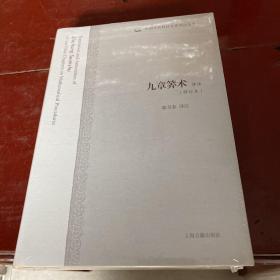
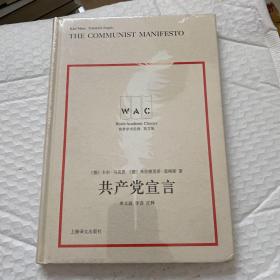
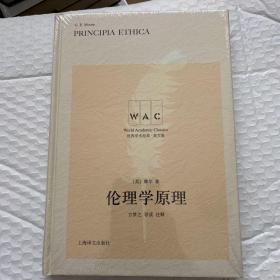
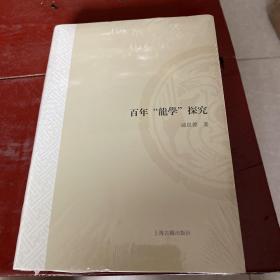







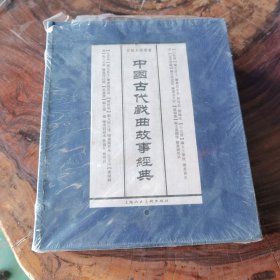







以下为对购买帮助不大的评价